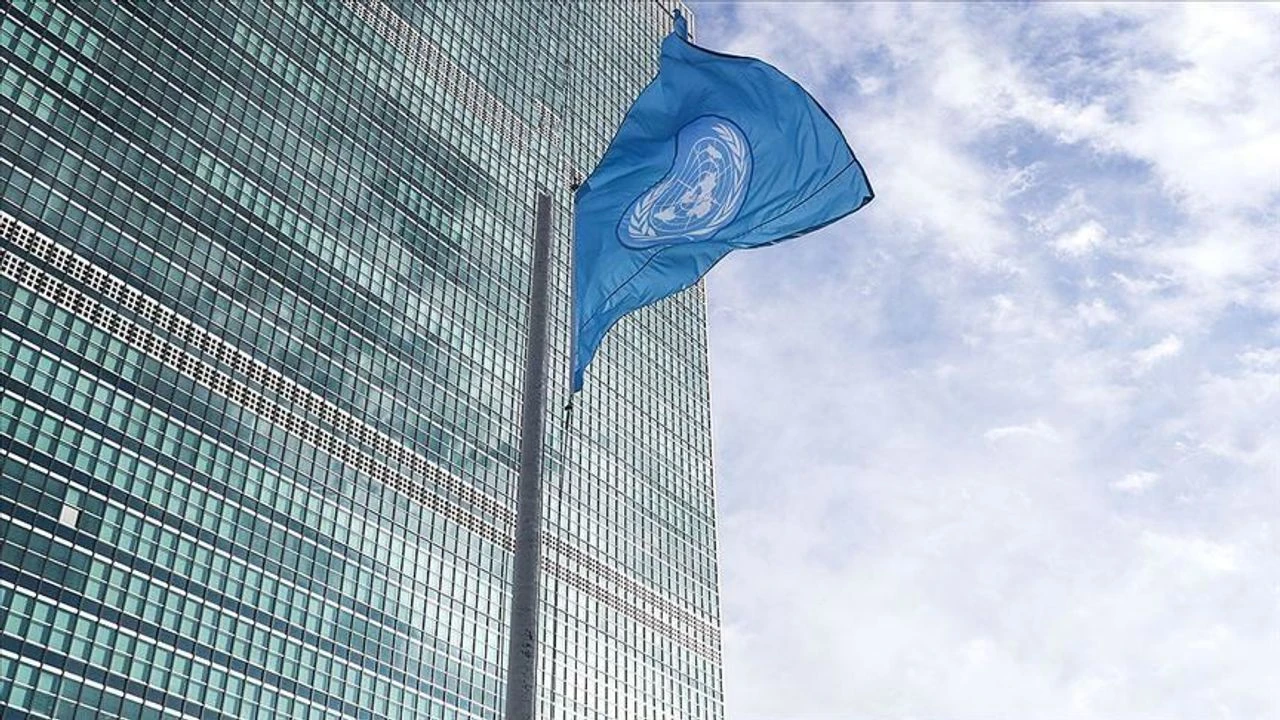
World Peace Day Declared by the UN Passes Under the Shadow of Conflicts
World Peace Day Declared by the UN Passes Under the Shadow of Conflicts
World Peace Day, celebrated every year on September 21 by the United Nations (UN), is being marked this year under the shadow of many global conflicts and challenges.
The UN General Assembly unanimously declared September 21 as World Peace Day in 1981. This day was dedicated to strengthening the ideals of peace through nonviolent actions, education, and public awareness.
In 2001, the UN also defined this day as a “period of nonviolence and ceasefire” and officially began referring to it as the “International Day of Peace.”
World Peace Day has grown into a global movement, involving governments, civil society, and individuals in activities promoting a peaceful world. The UN announced that the 2025 theme would be “Act Now for a Peaceful World.”
This year, September 21 is being observed under the shadow of global conflicts and challenges.
Genocide Committed by Israel in Gaza
Since 2023, Israel has continued its attacks on Gaza, resulting in the deaths of thousands of Palestinians.
Since October 7, 2023, Israeli attacks on the Gaza Strip have killed at least 65,174 Palestinians and injured 166,071 people.
The Israeli army has begun implementing an assault plan to expand and make permanent its occupation of the Gaza Strip. Israeli Prime Minister Benjamin Netanyahu announced that they would occupy the entire Gaza Strip.
Israel also carried out an attack in Qatar against the Hamas negotiation delegation, which had been tasked with mediation efforts.
Iran-Israel Conflict
On June 13, Israel carried out large-scale attacks on various Iranian cities, targeting nuclear facilities as well as the top ranks of the military.
Iran’s Chief of General Staff, the Commander-in-Chief of the Revolutionary Guards, several senior commanders, and 9 nuclear scientists were killed in the attacks.
Reports indicate that a total of 1,100 civilians were killed and 5,600 injured in Israel’s attacks. In retaliation, Iran launched missile strikes that, according to Israel, killed 28 people and injured 1,272.
The United States, which openly supports Israel, carried out strikes on Iran’s Natanz, Fordo, and Isfahan nuclear facilities on June 22. In response, Iran attacked the U.S. Al-Udeid Air Base in Qatar on June 23.
U.S. President Donald Trump announced on June 24 that a ceasefire had been reached between Iran and Israel. Despite this, some Israeli officials continue to issue threatening statements against Iran.
Russia-Ukraine War Continues for More Than 3 Years
The Russia-Ukraine War, which began in February 2022, has not yet ended despite all mediation efforts. Since the start of the war, Turkey has been pursuing diplomatic efforts to stop the bloodshed.
Following three rounds of talks in Belarus, Russian and Ukrainian delegations met for the fourth time at the Presidential Dolmabahçe Office in Istanbul on March 29, 2022, thanks to Turkey’s intensive diplomacy.
During the period when the war was ongoing and food issues were worsening, Turkey once again intervened. Turkey’s growing role in mediation and its capacity to bring parties closer led shortly after to the Black Sea Grain Initiative agreement.
The UN, Russia, Turkey, and Ukraine signed the Black Sea Grain Initiative in Istanbul on July 22, 2022.
In 2025, Turkey once again managed to host three high-level meetings between the delegations of the two countries in Istanbul. Even though Russian President Vladimir Putin and Trump met years later in Alaska, no concrete step has yet been taken to end the war.
Thousands of people have lost their lives, and many more have been displaced due to the war.
India-Pakistan Conflict
On April 22, a terrorist attack in Pahalgam, Jammu and Kashmir, that killed 26 people led to escalating tensions, with India launching missile strikes on May 6 against Pakistani territory and Pakistan-administered Azad Kashmir in retaliation.
Accusing Pakistan of being the origin of the Pahalgam attackers, India suspended the “Indus Waters Treaty.”
Indian Prime Minister Narendra Modi, during a cabinet meeting, named the military operations “Operation Sindoor.”
On May 10, both countries declared a ceasefire under U.S. mediation.
Thailand-Cambodia Tensions
Thailand and Cambodia, two Southeast Asian countries separated by 817 kilometers of border fences, have long experienced territorial disputes.
Following violations of the border agreement between Thailand and Cambodia, brief clashes erupted in the region on May 28. After nearly two months, on July 24, renewed clashes on the border resulted in a total of 32 deaths from both sides.
On July 28, Malaysian Prime Minister Anwar Ibrahim announced after ceasefire talks that the two sides had agreed to an “immediate and unconditional” ceasefire.